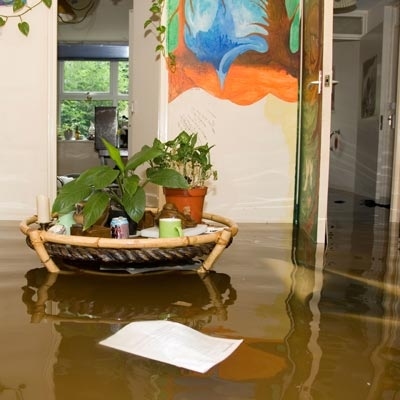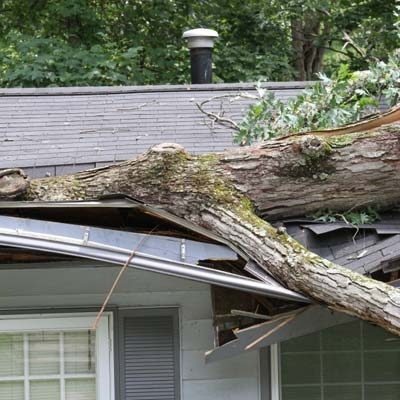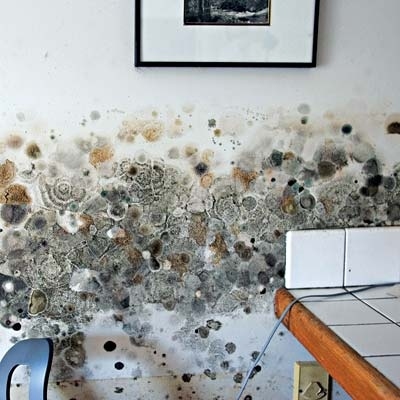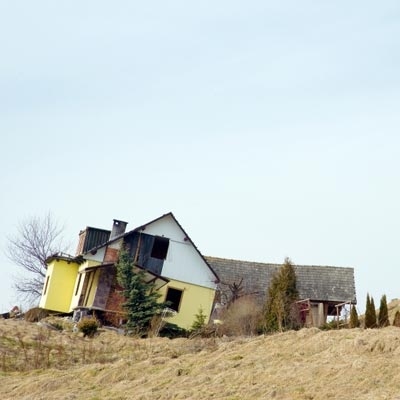Top 5 Disasters That Can Hit Your House While You're On Vacation
A summer getaway is supposed to be a time for rest and relaxation. But if your heart is on vacation while your head is worrying about home, you won't get much out of your time off. That's why we've brought you this handy guide of the top 5 bad things that can befall your house when you leave it alone. Don't fret—we also share with you expert advice on how to avoid these pitfalls. That way, you can take off worry-free, and know that there will still be a house standing when you pull back into the drive. See all these disasters threatening to ruin our vacations on thisoldhouse.com.
-
1. Your House Burns Down

One of summer's many lightning storms can start a fire, and with no one to call 911 it can take out a whole house. The best defense, says TOH general contractor Tom Silva, is lightning rods. "This is not by any means a homeowner job," he warns. "You need a pro to install them." Any highly placed metal protrusion on your house should be grounded, in fact, including weather vanes and satellite dishes. Don't overlook the health of your wiring, as well. Curtis Niles Sr. of Armored Home Inspections in Upper Darby, Pennsylvania, and President of the National Association of Home Inspectors, advises homeowners to keep up with maintenance. "Wiring is the last thing on a homeowner's mind, but I've seen exterior service cables in poor condition all too often." he says. "If there's short or a spark in the line, a fire can start, and you won't be there to put it out." MORE: Fire Safety and Prevention Checklist
-
2. The Whole House Floods

Niles says aging washing-machine systems are notorious for busting when you least expect it. "A bulge in the hose line indicates it's weak and ready to go," he says. Check the hoses before you go, and turn off the water supply to the laundry area, just in case. An aging water heater can also break down and send water cascading. "Lots of times there are signs that a water heater's failing," says Tom. "Water on the floor around it, or rust on the outside." Rust can mean that the sacrificial anode rod inside the tank has been depleted and the water is affecting the tank itself. Tom suggests checking the anode rod and turning off the water supply before you go away. "That way if your it dumps out, the only thing that happens is you get a wet basement," says Tom. MORE: 6 Surprise Disaster-Kit Essentials
-
3. A Tree Falls On Your Roof

Storm season hits hardest in summer months, when fluctuating temperatures can cause heavy rain, wind gusts, and even hurricanes. High winds can blow down a dead tree limb, and over-saturated soil can cause uprooted trees. Roger Cook recommends having a certified arborist come out to evaluate the trees around your house. He will be able to spot rot or other issues that you might not recognize, and he'll know which types of trees are vulnerable to uprooting. An arborist can also help with trimming back too-close tree limbs, which should be 8 to 10 feet away from your roof, or balancing out a tree that is uneven and therefore more prone to topple over in a bad storm. MORE: Best Ways to Deal with Storm Water
-
4. The Interior Gets Covered in Mold

Summertime humidity isn't just uncomfortable for you, it's a breeding ground for spores. Niles remembers inspecting an unoccupied home with the A/C turned off and discovering a subfloor covered with mold. "In the summertime it doesn't take much time for mold to grow and become visible - 72 hours if the conditions are right. Set the central air for 77 in the summer to keep the house dry and mold-free while you are away. Tom also suggests setting up dehumidifiers over sinks, so they can run constantly and drip into the drain. If you have double-hung windows with storm windows, keep air circulating by opening the top sash while leaving the screen down over the bottom sash. MORE: Home Inspection Nightmares
-
5. The House Slides Away

Intense rainfall spells big trouble if your foundation is not up to snuff. Architect Leigh Jerrard knows of a house that slid right into the street after a blocked street gutter redirected a few days of heavy rain onto the property. "If that house had a good foundation it would have survived." says Jerrard. If you know you have foundation issues, says Tom Silva, you have to be especially careful to keep water away. Grade away from the house, and keep gutters clean to keep them from overflowing and pooling water at the foundation. If necessary, put in a French drain to direct the water to a storm drain. And install a sump pump if your basement fills often. MORE: Fix Now, Save (A Lot) Later Don't miss the rest of the disasters on thisoldhouse.com.
Become a Community Contributor.

